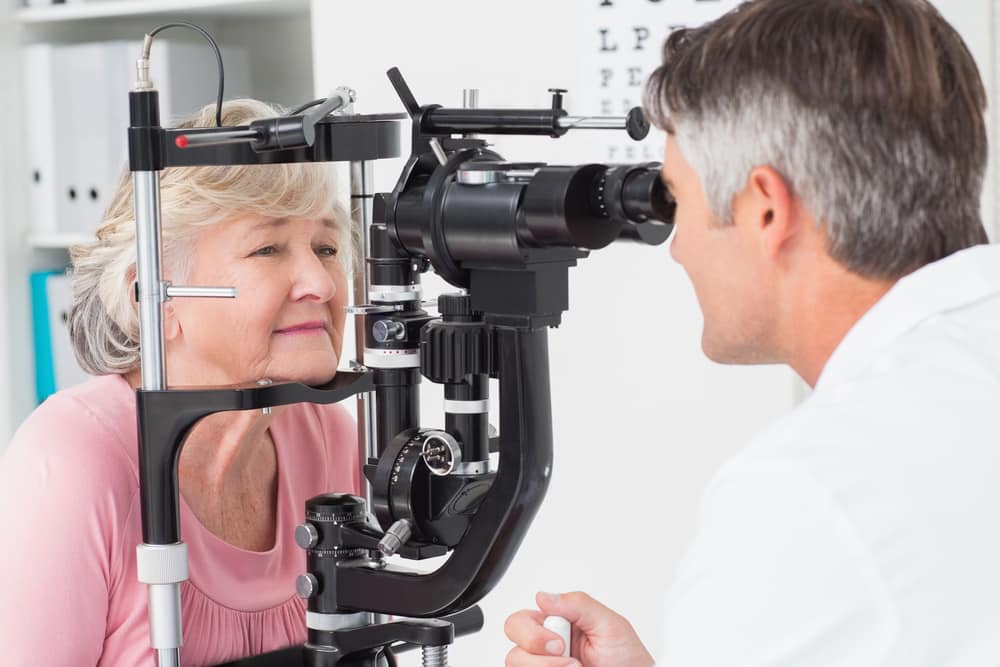Many people experience changes to their vision as they age, such as needing reading glasses or bifocals. Are you worried about your eyes developing issues as you grow older? Learning about age-related eye disorders can help you understand how to avoid them.
Age-Related Eye Disorders
As you get older, you probably notice that more and more of your friends are wearing glasses. Others may start carrying reading glasses or have their existing glasses upgraded to bifocals. Because of this, you may think that age-related eye disorders are inevitable. While it is true that some decline in vision is common as you age, there’s actually a lot you can do to prevent it. Learning what age-related eye disorders are, and how they work, is the key.
Eye Floaters
Do you sometimes see little specks in the corner of your vision? This can be alarming when it happens for the first time, but don’t panic. Eye floaters are caused by a few different things, one of them being aging in the vitreous of the eyeball. They aren’t a medical emergency, but you should ask your optometrist about them at your next appointment.
Presbyopia
If you’re squinting at the crossword puzzle these days, you might be encountering presbyopia. This is the name for what happens when eyes age to the point that it is difficult to read small text. While this does not happen to everyone, it is extremely common. Your optometrist will be able to recommend reading glasses or bifocals to correct it.
Glaucoma
Glaucoma is the general term for eye damage caused by increased pressure in the eye over a period of time. If left untreated, glaucoma can cause all kinds of vision issues for older adults, including eventual blindness. The good news is that there are many effective treatments for glaucoma. Eye drops, laser treatments, and even surgery for this disorder have a high rate of efficacy. The earlier you get treatment, the more successful it can be, so don’t wait.
Dry Eyes and Tearing
As we age, sometimes our tear ducts become less efficient, which can lead to dry eyes for some older adults. On the other side of the coin, sometimes our eyes can become overly sensitive to things like wind and temperature, causing excessive tearing in the eyes. Your doctor can provide eye drops and other treatments to resolve these issues. In severe cases, surgery might be necessary, but this is not common.
Cataracts
Cataracts are grey-white cloudy areas that appear in the lens of the eye as we age. If they become large enough, they can block the lens from refracting light, which can result in partial or total blindness. Cataracts can be a frightening condition to encounter for the first time, but you should know that cataract surgery is one of the most common and successful surgeries in the United States. During this surgery, a doctor will remove the affected lens and replace it with a clear plastic one, allowing sight to be restored and preventing future problems.
Age-Related Macular Degeneration
The “macula” is a cluster of cells in the retina that allows your eyes to perceive light. As you age, they can become damaged, which can lead to blurred or distorted vision. This is called age-related macular degeneration. If it is detected early, nutritional supplements and other medications can be an effective treatment. If it is not, there are other treatments that can still be effective, depending on the extent of the damage.
_____
Now that you know a little more about age-related eye disorders, you can probably see that early detection is key to successful treatment. So be sure that you’re making your scheduled eye exams every year, and see your optometrist if issues arise in the meantime.
Are you looking for an optometrist to answer your questions? If you live near southwest Missouri, stop by Heffington’s. Since 1975, the Heffington family has been assisting the Springfield community with top-quality eye care and affordable eyeglasses and contacts. To learn more about our products and services, please get in touch with us online, send an e-mail to asktheexperts@heffingtons.com, or give us a call at 417-869-3937 (Optiland location) or 417-882-3937 (House of Vision location).

